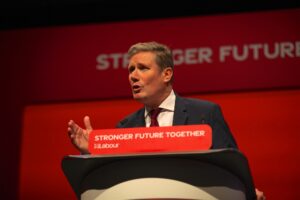The ability of voluntary and community sector organisations to represent and support marginalised groups has been seriously damaged. Equality must return to the top of the agenda, says Debra Allcock Tyler
 Did you know that the phrase ‘Big Society’ topped the Oxford University Press’s word of the year in 2010, beating ‘vuvuzela’ (remember those?) and ‘Boris bike’ (yikes!)? Yes, the brave new world promised us greater freedom to serve our communities, run our own public services, and shrink the state (great!). However, look a little more closely and the shine starts to rub off.
Did you know that the phrase ‘Big Society’ topped the Oxford University Press’s word of the year in 2010, beating ‘vuvuzela’ (remember those?) and ‘Boris bike’ (yikes!)? Yes, the brave new world promised us greater freedom to serve our communities, run our own public services, and shrink the state (great!). However, look a little more closely and the shine starts to rub off.
Let’s take equalities as an example. Surely the Big Society champions equality for all? Everyone equal under the sun? No. The reality is that the new legislation is all geared towards concepts of ‘fairness’ rather than equality. Nowhere in the localism bill, or the local growth white paper are the words ‘equality’, ‘equalities’ or ‘diversity’ to be found.
Now you might think this is just splitting hairs over semantics, but this move away from equality has potentially wide-sweeping implications for anyone identifying in one or more of the current equalities strands.
In practice, downgrading of equalities as a policy priority means:
• No funding for equalities organisations under the OCS strategic partners scheme (although after a public outcry, Voice4Change, Community Matters and the Women’s Resource Centre have been given consolation advisory roles with some project funding to provide advice to government on the challenges that inequalities present to the Big Society agenda and how to address them)
• A 60% cut in funding to the Equalities and Human Rights Commission
• Local authority equality impact assessments no longer being a requirement
• Potential discrimination against marginalised people and organisations who don’t have the same access to opportunities, or the funding required, to design and run the public services under the localism idea
• Competition for service providers to do more with less meaning access for more marginalised people might be the first thing to be axed
• The devolving of responsibility for health services to consortiums of GPs will likely lead to huge disparities in good/bad/indifferent relationships between GPs and marginalised communities
• And the general exacerbation of established inequalities.
And it’s not just people ‘with protected characteristics’, but other marginalised and disadvantaged, socially and financially excluded groups too. Equality of opportunity to participate must be taken into account. Overcoming the barriers which some people from more marginalised groups face involves making sure that there are bespoke and holistic services tailored towards specific needs – not just some vague notion of ‘fairness’ of opportunity.
As a recent discussion organised by the Centre for Local Economic Strategies (CLES) concluded: ‘Government says it wants people to have more of a say, but if they haven’t got a voice already, they won’t be able to take part.’
And this is why DSC wanted to get involved in a unique research project analysing the potential effect of the (un)fair legislation on both equalities-focused voluntary and community sector organisations and individuals, and individuals with protected characteristics.
As a steering group member DSC has been privileged to help shape the research project: Equality, Localism and Big Society commissioned by the North West Infrastructure Partnership, funded by Voluntary Sector North West (through the lottery) and carried out by the Centre for Local Policy Studies and CLES. The CLES/NWIP report Responsible Reform due to be launched on Thursday is drawn from this research.
The overriding conclusion from is that equalities considerations have been woefully overlooked in the thinking up and implementation of Big Society policies, potentially and actually causing considerable damage to individuals and groups with protected characteristics and equalities specific voluntary and community sector organisations.
Recommendations include developing a social justice framework for ensuring accountability for equalities during the implementation of Big Society policies, clearer strategies for mitigation measures associated with negative equality impact, and support from the Office of Civil Society in sustaining the infrastructure for supporting equalities-focussed voluntary and community sector organisations.
So, be warned: the Big Society is coming to a community near you and we all need to be ready to stand up for equality and the marginalised. No we don’t want ghettoisation but we do want real equality. Until that’s sorted Big Society can get on its Boris bike, and (I never thought I’d say this but) I’d rather have a vuvuzela!


















Leave a Reply